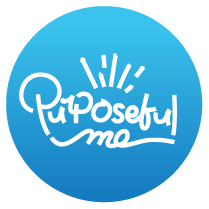Get On Board: The How
Last week’s post was an encouragement for us to get on board with the changes that are often outside of our control. The only ways to respond include embracing the change, maximising the opportunities, accepting and choosing to make the most of each phase of life with an attitude of gratitude and positivity. This week’s post is the concluding part focused on how to respond to the changes. Here are some tips, strategies and tools that can help us respond to the changes that we can’t avoid.
Prepare for change!
Many changes are unexpected, but there are changes we can prepare for because we know they are eventually coming. Retirement, old age and menopause are three life altering changes that everyone of us will face so there are no excuses for them to catch us unawares.
As we get older, there are potential issues of mobility and agility so before we get there, we can form habits that help us to keep in shape, maintain a healthy weight, and get into exercises that strengthen our muscles and support our balance. Loneliness is an issue as many people get older but the question is, what efforts are being made now to reduce the risk of loneliness.

If you refuse to invest in friendships and other relationships today, the changes will still happen but you remain unprepared.
Finances can also be an issue as many people get older and the steps to manage the future must start today with the financial decisions that we make during our working years. Put steps in place e.g. have an administrator for your estate, design carer management and budgeting for old age.
Don’t bury your head in the sand – don’t deny the change
A few years ago, I remember having really unbearable hot flushes to levels that could tempt anyone to condemn this phase of their life. One minute, I would be very cold and a few minutes later, I would be so hot that going outside for a blast of cold air was the only option. Trying to get work done was challenging as I could end up getting up to 15 times within an hour simply to regulate my body temperature.
There was no denying this ‘menopause’ issue, burying my head in the sand was not an option even as my mind tried to work out why it seemed like my body was under attack.
So I simply accepted what was happening and I reminded myself that my grandmother and mother survived menopause and so will I. I stopped thinking of the inconveniences of regulating the temperatures around me and I began to laugh at myself and make jokes about getting up to shut windows even as I was opening them. Sometimes I just encouraged myself to ride out the next five minutes as I knew I would soon be reversing whatever action I took. I also changed my clothes so it was easy to ‘layer up or down’ as needed.
Educate yourself

We live in an information age with remote working now a norm; we can and must unlearn, relearn and learn what needs to be.
To help deal with the menopause symptoms, I educated myself by listening to podcasts, talking to friends and reading books; I got the much needed assurance that I wasn’t going crazy, I was just doing a different stage of my life. I focused on maximising the process, so rather than worrying about not sleeping at night, I used the time to read or do some work and napped whenever I could to make up for it. I practiced more self love and made some necessary changes for my mental wellbeing.
Education and information bring power to change your situation. You can learn many skills online that will help you to navigate the changing world we are in and the changes you will personally face.
Learn to let go
As my boys grew up, I knew I wouldn’t always be able to monitor them to make sure they were doing the right thing so I quickly learnt to let go of the shoe strings encouraging them to take ownership of their own lives.
This included doing their homework for school once they got to secondary school. My prompts were not to remind them to do their homework but to tell them that I knew they had it under control. It was still a reminder but it put the onus and ownership of the tasks on them.
Doing their homework wasn’t for my benefit, getting decent qualifications and building their careers were for them, so I helped them to visualise the future they wanted and showed them the dependencies were on them and not me. Many parents struggle today because they never learnt to let go.
One other area that I needed to let go as they went off to university was concern for their safety and wellbeing. I realised I would live in constant fear if I didn’t release them and trust their creator with their lives. Once I did that, I enjoyed the peace that comes with knowing that they are known, seen and loved.

Be adaptable and responsive
Be willing to change and stop expecting the world to change for you. I know many people who want to just wait and ride things out yet they want the lives that others are working hard for. If the skills required by your workplace are changing, don’t moan about your employers or company, do what it takes to get the skills they need from you.
No one will keep a workplace in the dark ages to suit your preference. Become multi-skilled.
Trust the process
We have to trust the process of change especially those outside our control. Have you parented well? If yes, then trust your children to live up to the values you instilled into them.
Trust the aging process, trust the changing demands for skills and how we do business and prepare to remain relevant. Trusting technology is scary for most people and I know people who still say they don’t trust online banking but many banks in the UK today have few counter staff so the way we do banking is no more. Rather than distrusting technology, we need to educate ourselves on how to be safe online.
Thanks for reading my post, I hope these tips will help you navigate your changes. Don’t forget to share this with others and see you next week.

